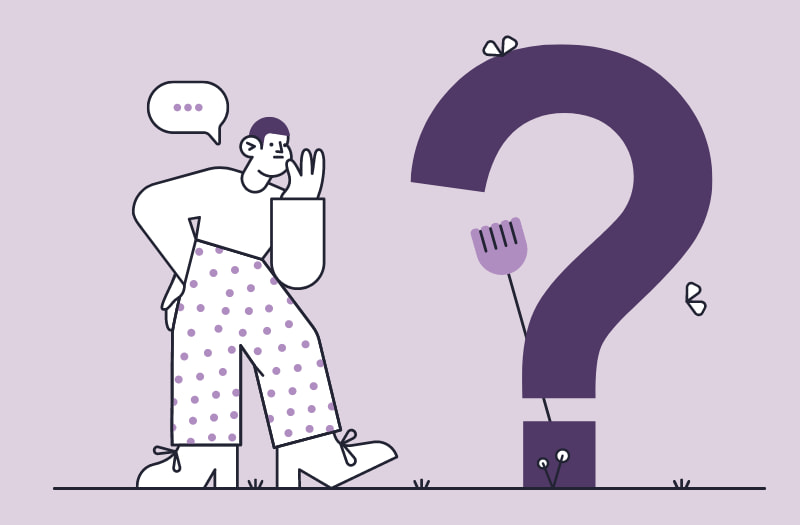Why is Critical Thinking Important in the Public Sector?
 Kathryn Williams
·
4 minute read
Kathryn Williams
·
4 minute read
In a world full of challenges and decisions that have an impact on our communities, it is crucial to understand the role critical thinking plays in fostering effective communication, governance and enhancement of services.
In this blog post, we will explore the importance of critical thinking in the public sector and uncover how it empowers individuals to navigate problems, promote transparency and foster progress.
Contents:
- What is the Importance of Critical Thinking?
- 5 Key Characteristics of Critical Thinkers
- How to Improve Your Critical Thinking Skills | Key Actions
What is Critical Thinking?
Critical thinking can be defined as the ability to make rational and clear, non-bias judgements based on your analysis of available facts, evidence and observations.
Critical thinking is made up of many different components and skills. One common feature is analysis - we cover the key characteristics of a critical thinker below.
Why is Critical Thinking Important?
Critical thinking is an important skill for an individual to possess, especially in the workplace. It gives individuals the ability to effectively diagnose problems and identify possible solutions to them. More specifically, having strong critical thinking skills is helpful because:
1. It Improves Decision-Making
Having critical-thinking skills is essential in all job roles, but especially those which require you to make important decisions every day. For example, management, marketing, finance, and customer service jobs all require decision-making. Leaders should be able to analyse complex data, weigh options, assess risks and make decisions based on objective evidence rather than personal biases.
2. It is Essential in Many Public Sector Professions
Critical thinking is the process behind problem-solving and is the key component to career success. Many jobs require individuals to navigate complex problems where information needs to be analysed to overcome challenges or develop preventative strategies for removing issues. For example, police officers serve their communities by responding effectively to emergencies.
3. It Enhances Problem-Solving
Problems arise constantly in the workplace. When approaching these adversities, it is important that you think critically. This enables several alternative solutions to be produced and to come to a decision that is most beneficial for your organisation.
5 Key Characteristics of Critical Thinkers
What defines a critical thinker? Here are 5 characteristics that are common in critical thinkers.
1. Open-minded
Having an open mind helps avoid barriers to critical thinking, such as biases and personal opinions. Being able to challenge your own beliefs and have the willingness to expand your knowledge will help make more well-informed decisions when faced with challenges.
Top tip: Ask “why” questions more often. Expand your knowledge of unknowns by googling, reading books and asking your peers, friends, or family.
2. Observational
Observing is not just simply about looking. Having observational skills allows us to learn more information regarding a situation, and the ability to be able to use this information to in-hand make better decisions.
It also allows you to view things from different perspectives, think outside the box and find alternative solutions to problems.
3. Analytical
The ability to be observant is important, however, the ability to be analytical is essential for informing your key decisions. Analytical thinking consists of using existing information to precisely assess situations, with a focus on cause and effect.
Some analytical skills include:
-
Attention to detail
-
Research skills
-
Data analysis
-
Forecasting
-
Evaluating
4. Great Communicators
Being a good critical thinker requires good communication skills. The ability to be able to articulate your plans and goals while acknowledging others’ opinions and perspectives is highly important towards achieving the best results.
Critical thinkers excel in active listening. Active listening goes beyond just hearing what is being said. It requires a higher level of engagement; this can come in the form of:
-
Asking relevant, open-ended questions to strengthen mutual understanding.
-
Being fully present in the conversation
-
Practising good eye contact
-
Reflecting on what has been said
-
Paying attention to non-verbal cues
5. Problem-Solvers
Good problem-solving skills are essential when trying to approach challenges. You can solve complex problems by executing a set of techniques to find effective solutions.
Problem-solving comprises four steps:
-
Define the problem
-
Generate ideas
-
Test your ideas
-
Take action
Actions You Can Take To Help Improve Your Critical Thinking Skills
While you may think that critical thinking is a skill that comes naturally to some, it is in fact a skill that can be learned, developed, and enhanced over time. With some simple steps and changes in your daily habits, you can gradually learn to become an expert critical thinker.
1. Ask Important Questions
To become a critical thinker, it is important that you are constantly questioning things. This includes questioning assumptions, ideas, decisions or proposals made by senior members of your team, as well as questioning your own personal beliefs.
2. Be Independent in Your Thoughts
While often more heads are better than one, it can be all too easy to be influenced and swayed by other people’s thoughts and opinions. Learning to develop your own individual ideas can offer ‘outside of the box’ ideas that may be beneficial to your team.
3. Evaluate Evidence
Analysing evidence beyond its face value and doing extensive research surrounding a relevant area will directly help you solve the problem at hand, and form an educated solution.
4. Acknowledge Your Personal/Unconcious Biases
When making key decisions, it is important to be able to put any personal biases or opinions aside and try and look at things from a neutral lens.
Focussing on personal biases is called ‘Confirmation Bias’. It is the instinctive tendency to listen to or respect the data that aligns with our own viewpoints. Subsequently leading us to disregard any information that opposes our own beliefs.
To combat this and to think more critically, you must be able to challenge these pre-existing viewpoints. You can do this by investigating a variety of sources, considering different perspectives and discussing your ideas/opinions with others. Contesting your verdict will give you a well-rounded view of a scenario, and enable you to make fair, justified and impartial decisions.
5. Break Large Issues Up into Smaller Steps
Seeing the bigger picture isn’t always the right way to make well-informed decisions as it can make tasks appear daunting and too big to tackle, leading to stress and anxiety. Breaking issues down into smaller steps can help these challenges become more manageable. For example:
6. Don’t Overcomplicate Issues
Often people search for the most complex answer and overcomplicate issues that have simple solutions. Occam’s Razor is a philosophical theory which says if you have two competing ideas explaining the same phenomenon, you should favour the simpler one.
FYI: Check out our Overcoming Overthinking Training to learn how to develop strategies and gain practical tools to avoid wasting precious time and energy on a single issue.
Continue to Build Your Critical Thinking Skills With Our Courses
Now you know why critical thinking is an essential skill in the workplace, it's time to take action and enhance your skills.
Our Confidence & Resilience courses will help you build on essential workplace skills such as:
- Overcoming Overthinking
- Confident Communication and Assertiveness.
- Confident Communication for Women in the Workplace
Or Maybe You're Looking For Bespoke Team Training?
All of our training courses can be customised and developed specifically for your team or organisation and presented on-site at your offices, at an off-site suitable location or virtually. Enquire here.
1+ years of content, social media, and email marketing. Endeavouring to bring the latest, expert-led courses to the forefront for public sector professionals looking to develop their skills and learn new ones.








